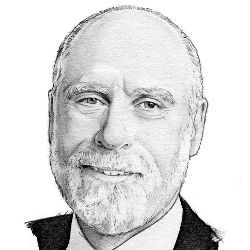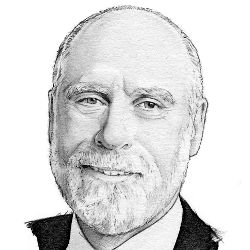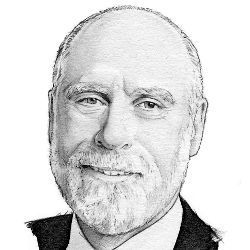Anyone with a collection of DVD or CD-ROM disks will appreciate that we cannot rely in the long term on specialized format devices being available. It is worth some effort to pay attention to the nature of these dependencies, their scope, and the potential side effects.
Vinton G. Cerf
As configuration complexity and scale grow, the need for smarter configuration systems, better online assistance, and the ability to share context with customer service agents will become increasingly important.
Despite the wonders of the human brain, it does not appear to have a convenient way to grow processing capacity while we can achieve that objective with our artificial computers by adding memory or adding processors.
There Is Nothing New Under the Sun
Centuries before George Boole and Charles Babbage, the notion of binary encoding was well known and apparently even used! Julius Caesar was known to use a simple rotational cipher. Francis Bacon devised a binary encoding scheme and wrote about it in 1623.
A Long Way to Have Come and Still to Go
Oral interaction with computers is increasingly common. Pretty much anywhere you use a keyboard, Google's applications now allow you to speak. This leads me to wonder whether it is possible to write significant programs by way of high-level oral (or written) interaction with a programming system.
Does Innovation Create or Destroy Jobs?
Do we know whether innovation creates or destroys jobs? The answer is yes to both aspects. What should be fairly obvious is that new jobs created by innovation often require new skills and some displaced workers may not be able to learn them.
The second Heidelberg Laureate Forum was even better than the first, if that is possible.
The prospect of increasingly unconventional computing methods that may force us to rethink how we analyze problems for purposes of getting computers to solve them for us.
As our computational tools become more and more powerful, we can anticipate that our growing knowledge of the mechanics of our world will allow us to use simulation to visualize, understand, and even design processes that we could only crudely imagine before.
ACM and the Professional Programmer
ACM has not grown in a way commensurate with the evident growth of programmers in the profession. The question is whether and how ACM can adapt its activities and offerings to increase the participation of these professionals.
Shape the Future of Computing
ACM encourages its members to take a direct hand in shaping the future of the association. There are more ways than ever to get involved.
Get Involved


